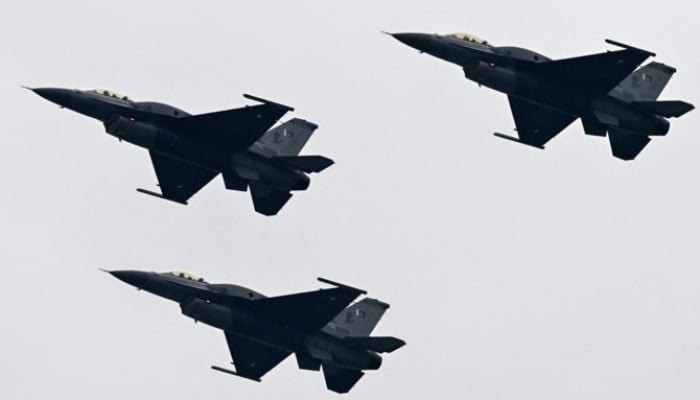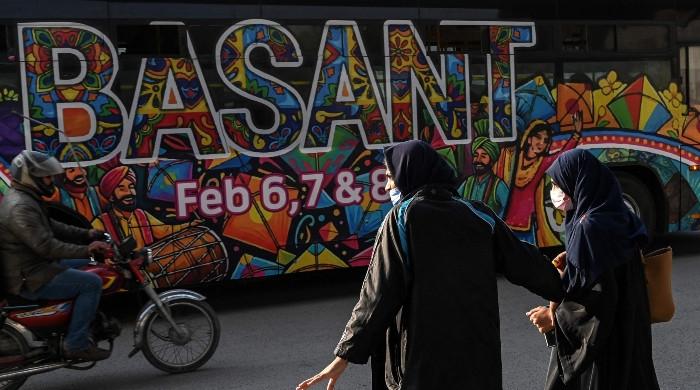India's polarising powder keg
Engagement by China can both assuage Pakistan's security concerns and press India to rein in extremist posturing
May 01, 2025

A spectre of war now hovers over South Asia – and not only because of tanks on the Line of Control.
In the wake of the April 22 terror ambush in Pahalgam's Baisaran Valley in Indian Illegally Occupied Jammu and Kashmir (IIOJK) that brutally claimed 26 lives, New Delhi unilaterally suspended the Indus Waters Treaty, Islamabad threatened to void the Simla Agreement, and both countries have massed troops.
Rhetoric has surged to war-like proportions, even as UN Secretary-General Antonio Guterres personally reached out to Prime Minister Shehbaz Sharif and India's External Affairs Minister S Jaishankar and expressed his deep concern at the rising tensions between India and Pakistan, emphasising the need to avoid a confrontation that could result in tragic consequences.
On April 22, five gunmen — that India claims were affiliated with an outfit called The Resistance Front — opened fire on 26 tourists (25 Indian nationals and one local Muslim guide) amid the verdant meadows of Baisaran. It was the deadliest civilian attack in IIOJK since 2008.
Within hours and offering no evidence, New Delhi announced the suspension of the five-decade-old, World Bank-brokered Indus Waters Treaty, upon which some 80% of Pakistan's irrigation depends.
Islamabad retaliated by closing its airspace, halting bilateral trade and hinting it might rescind the 1972 Simla Agreement, which has underpinned ceasefire protocols for half a century.
Across the de-facto border, artillery exchanges have taken place. Two days back, Defence Minister Khawaja Asif warned that an Indian incursion is "imminent", while Information Minister Atta Tarar claimed on Tuesday that there was "credible intelligence" of a strike within 24-36 hours.
Even as armies face off, mobs in India have seized upon the crisis to unleash sectarian violence. Within India, polarising currents are tearing at the social fabric.
In the past fortnight. In Aligarh, Uttar Pradesh, a 15-year-old Muslim schoolboy was forced to unbuckle his belt and urinate on a Pakistani flag by upper-caste youths furious over the IIOJK ambush. The adolescent was beaten simply for chanting in solidarity with Kashmiris, a protest as much about dignity as geopolitics.
In Mangaluru, Karnataka, a daily-wage labourer was lynched after allegedly shouting 'Pakistan Zindabad' during a cricket match. Police have detained 15 suspects, yet the victim's identity and the mob's precise motive remain obscure.
In Mussoorie, Uttarakhand, 16 Kashmiri shawl-sellers — branded 'outsiders' — were driven from Mall Road by an angry crowd. Three vendors required hospital treatment, their livelihoods shattered by street-level bigotry.
These are not isolated incidents but the direct offspring of a fevered climate in which any perceived sympathy for "the other" is equated with treason.
A war between India and Pakistan could be neither contained nor brief. The real-world fallout — starvation, destitution, public-health collapse and mass displacement — would spiral well beyond the LoC, imperilling South Asia's development gains and global stability alike. The stakes could not be higher.
More than 336 million adults on both sides of the border remain illiterate, representing around 44% of the global total. This is the largest concentration of illiterate population on earth.
India and Pakistan together harbour around 140 million of the world's poorest, nearly one in five of all those living on under $2.15/day. Violence would further imperil their already difficult existence.
Instead of acting as a balm, the ruling BJP has seized upon the crisis to deepen domestic divides. India had been planning to use water as a weapon for years.
On September 26, 2016, Prime Minister Narendra Modi chaired a high-level meeting on the 56-year-old Indus Waters Treaty and declared: "Blood and water cannot flow together". Modi's divisive policies have extended the National Register of Citizens beyond Assam, with senior BJP figures promising roll-outs in Jharkhand and Karnataka during the 2024-25 state election campaigns.
The recent Immigration and Foreigners Bill, 2025, fast-tracked through parliament in March 2025, empowers officials to refuse entry or deport any foreign national on "such other grounds as the central government may specify," effectively permitting mass expulsions on nebulous "security" grounds without meaningful appeal.
These measures have coincided with, and in practice lent de facto approval to, a resurgence of communal vigilante violence. BJP-affiliated cow vigilantes have even won party tickets, while mobs have lynched individuals suspected of 'anti-national' sentiments, often with impunity.
Such state-sanctioned exclusion erodes India's pluralist foundations and sends a clear signal that majoritarian mobs need fear neither legal nor political consequences.
A Human Rights Watch analysis found that 110 of Modi's 173 speeches in 2024 contained Islamophobic rhetoric, correlating with spikes in communal unrest, from the Assam NRC statelessness crisis to mob attacks in Haryana's Nuh district.
If the subcontinent's two nuclear-armed rivals cannot pull back from the brink, powerful external actors must step in:
United States: Washington has publicly urged restraint, with Secretary of State Marco Rubio planning calls with the foreign ministers of India and Pakistan to press for de-escalation along the Line of Control.
In those engagements, US officials emphasised the importance of upholding existing international agreements — particularly the Indus Waters Treaty — to maintain regional stability.
The US appears to be leaning on high-level strategic dialogues and longstanding security partnerships to encourage both sides to stand down.
Saudi Arabia: With deep ties to Islamabad and Delhi, Riyadh could play an important role in restoring regional calm.
China: Beijing has publicly backed Pakistan's call for an impartial probe into the Pahalgam attack — "hoping both sides will exercise restraint, move toward each other, and work to de-escalate tensions" — as Chinese Foreign Minister Wang Yi put it.
China also has a powerful incentive to see India-Pakistan hostilities defused. In FY 2024-25, China was India's second-largest trading partner, with two-way commerce of $127.7 billion (15% of India's imports).
Beijing's Belt and Road projects depend on stability in Pakistan, and Chinese firms rely on access to Indian markets. Direct diplomatic engagement by China could therefore both assuage Islamabad's security concerns and press New Delhi to rein in extremist posturing on both fronts.
European Union and United Nations: Brussels and New York can remind New Delhi that global markets prize pluralism as much as geopolitical muscle.
Modi's gamble on nationalist fervour carries enormous risk. A descent into cross-border war — or even further communal carnage at home — would shatter South Asia's economy, drive millions into destitution and render the region an international pariah.
If restraint cannot be mustered from within, it must be compelled from without. The world's major powers — and key Gulf partners — must deploy every diplomatic and economic lever to force restraint, before bellicose rhetoric leads to real war and before hope is drowned in blood.
The writer is former head of Citigroup's emerging markets investments and author of 'The Gathering Storm'.
Disclaimer: The viewpoints expressed in this piece are the writer's own and don't necessarily reflect Geo.tv's editorial policy.
Originally published in The News











